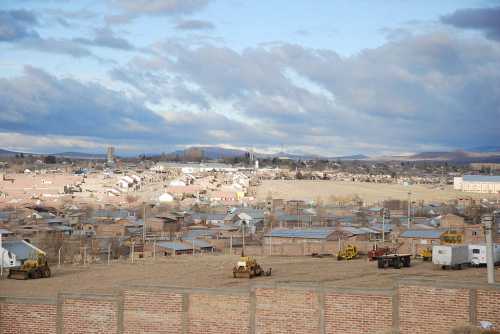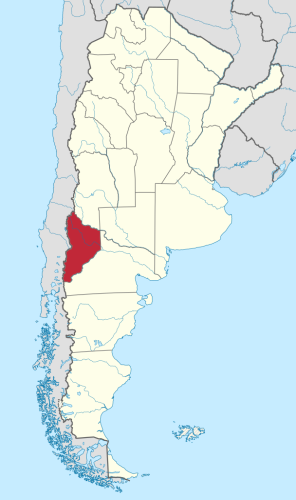WLD Controversy: Argentina Newsstand Paid $20 for ‘Iris Scans’

Argentinian authorities are investigating a newsstand operator who allegedly paid customers and “neighbors” around $20 for iris scans, amid ongoing Worldcoin (WLD) controversy in LATAM.
Per the media outlet Río Negro, an Argentine consumer rights-focused prosecutor has begun an investigation into the case, with police also launching a separate probe.
WLD Controversy: Argentinian Concerns?
The newsstand operates in the Patagonian city of Zapala, in the Neuquén Province. Officials claim the newsstand operator – or an individual working inside the booth – was not authorized to carry out biometric data scans.

Zapala, Neuquén Province, Argentina. (Source: Dangelin5)
The media outlet claimed it had information suggesting the operator had links with Worldcoin and the WLD token.
Citizens in the city reported that long lines often formed outside the newsstand “throughout the day.”
Río Negro named the newsstand as Maxiquiosco San Martín, “a store located in the city center on its main avenue.”
Passers-by claimed this was unusual, as newsstands “currently do not attract so many customers at once.”
An anonymous resident town told the newspaper that “inside the newsstand, there was a person who used the kiosk as an office.”
The same resident said the man inside the newsstand “had a computer, and he paid people […] to give him their biometric data.”
Radio Tipoff
The case reportedly came to light in the city after a woman called a local radio station to report that people were “exchanging personal information for cryptocurrencies” at the stand.
Daniel Domene, of the Province of Neuquén’s Ministry of Security said that the newsstand operator “bought this data” and “used an international company dedicated to scanning irises and people’s faces, among other things.”

Neuquén Province, Argentina. (Source: NordNordWest, GrandEscogriffe [CC BY-SA 4.0])
Domene did not mention Worldcoin by name. But the newspaper claimed it had data suggesting this was the case.
It pointed out the fact that Worldcoin officials “scan people’s irises in exchange for financial compensation in cryptocurrencies.”
Río Negro added that Worldcoin was the “only” firm of its kind “operating in the province of Neuquén.” It added that Worldcoin operates in “almost all the country’s provinces.”
Investigators are reportedly “investigating whether the man with the computer at the newsstand” actually “has ties to Worldcoin.”
Argentine President Javier Milei said he would leave Mercosur if necessary to cement a free trade agreement with the US, although he hopes to reach a deal without needing to take such drastic action https://t.co/PeWStjTmtg
— Bloomberg Economics (@economics) January 25, 2025
Legal Probe
Law enforcers could reportedly “penalize the man and the company” if they are “found guilty of legal infractions.”
However, Domene explained that “scanning of a person’s face and iris in exchange for cash or cryptocurrency is not a crime per [the Argentine] criminal code.”
But Argentine data protection law classifies biometric data as “sensitive.” That means companies can only collect, store, and process such data “in exceptional cases.”
“This,” the media outlet wrote, “is clearly not an exceptional case.”
Domene added that the operator “may be liable for administrative offenses” for failing to register with the Personal Data Protection Agency.
And Domene explained that investigators would want to ascertain if the man was working “on behalf of an international company.”
They would then need to verify “if [this firm] is registered and authorized for this purpose, among many other things.”
10 million verified humans on World Network.
Thank you 🫶 pic.twitter.com/wQPWxsnERm
— World (@worldcoin) January 10, 2025
WLD’s Expansion in LATAM
Worldcoin and its operator Tools for Humanity have continued a successful expansion into the LATAM region.
But this has drawn the attention and concern of regulators, lawmakers, and security watchdogs in nations such as Mexico.
“Worldcoin is operating in areas where people may be in more desperate situations and have fewer legal protections. It is understandable why many leaders find this concerning.”
Evin McMullen, co-founder and Chief Strategy Officer, Privado ID
Source: cryptonews.com



